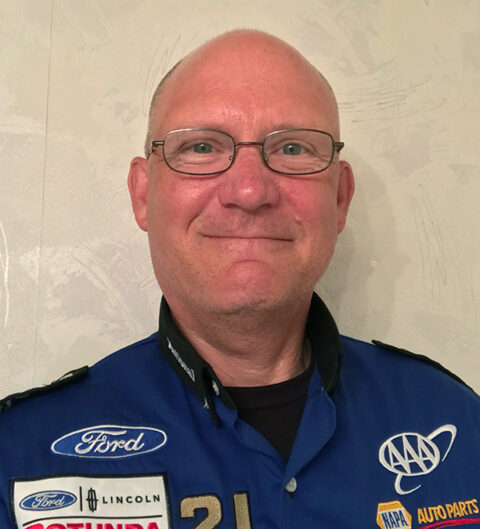“When I see former students use skills learned in our class to build careers and families, earn certifications and create dynamic futures, it heartens me.”
When Brian Manley graduated high school more than three decades ago, he graduated with a diploma and a certification in automotive technology from the Warren Occupational Technical Center. As a master technician who wanted to be a top diagnostic tech, Manley took night classes in vehicle electronics, emissions repair, new model engineering and more, staying up to date on emerging vehicle systems.
Manley’s love of learning—and mentoring his fellow technicians—brought him to the classroom 26 years ago. His program was one of the first two certified through the Automotive Youth Educational Systems in 1998. Early on, Manley championed his students’ involvement in SkillsUSA, a national nonprofit organization that supports career and technical education students, preparing them and traveling with them to regional, state and national-level contests. His students also compete in the Ford/AAA Student Auto Skills contest—a national competition in which students race against the clock, and their rivals, to diagnose and repair vehicles—and have taken home tens of thousands of dollars in scholarship winnings.
Today, Manley teaches at Cherry Creek Innovation Campus, a groundbreaking new career-oriented high school. Students learn through a model Manley dubs “Know, See, Do, Prove,” going from picking up basics and observing to demonstrating mastery of skills. As they learn, students can pick up credits at Arapahoe Community College, where Manley also teaches.
Continuing his love of learning, Manley completed a bachelor’s degree in automotive management from the Pennsylvania College of Technology in 2012 and a master’s degree from Adams State College in 2017. He is in his final year of a doctoral program in leadership for educational equity at the University of Colorado Denver.
“As a 20-something immersed in the repair of modern automobiles, I marveled at the complexity of emerging vehicle systems,” Manley wrote in his prizewinning application. “I was—and am still—excited to learn how new systems work, and how to diagnose and repair them when they do not work.”
“The saying that ‘every passion finds its destiny’ is one that I take to heart when working with my students, because they don’t know what they don’t know yet. It’s my pleasure and responsibility to help students become skilled, productive and happy people.”
